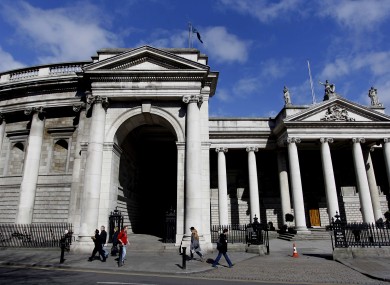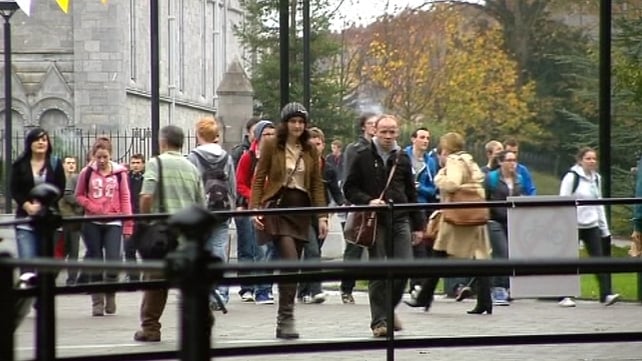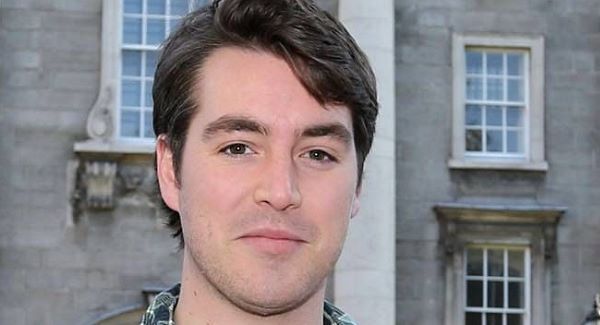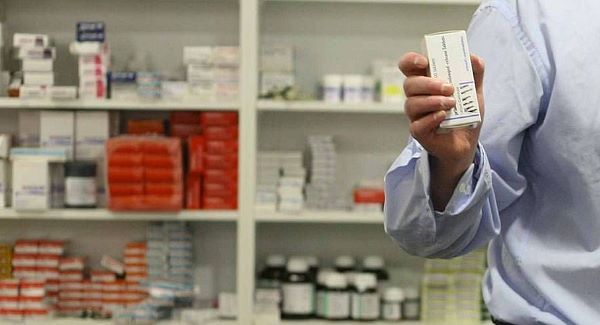Some signs now of a better and renewed banking system developing in Ireland


The decision by Permanent TSB to increase its consumer lending to €450m in 2013 is one of the most promising developments since the boom ended with the property crash and the drastic fall in house prices.
Of the total, €350m will go towards new mortgages and €100m to car loans and other personal loans. Credit card loans will account for €5m.
The €350m for mortgages may not seem an enormous sum of money. But it is enough to make a big difference to the revival of the property market. It will help to bring some much-needed confidence.
The move could also mark, albeit tentatively, a step in the development of a better Irish banking system.
Before the rise and fall of Anglo Irish Bank, there was speculation about a “third force” to compete with the two giants, AIB and Bank of Ireland. The speculation faded with the crash, when the banks (including Permanent TSB, which received €4bn) had to be bailed out by the taxpayers. Perhaps we can now look forward to a renewed system, which is both sound and competitive.
If this happens, it will enable us to tick off one item on the vast schedule of measures necessary to promote recovery. Another is the plight of small and medium business.
To date, the banks have kept large numbers of small businesses on a sort of life support, unable to expand, probably sinking further into debt and costing the banks – and ultimately the taxpayers – money that they cannot afford and which cannot be recovered.
Obviously this state of affairs is not sustainable, and the banks, under pressure from the Central Bank, are about to start sorting out – or writing off – huge sums in loans now in arrears.
An analysis of €32bn in SME loans in 2011 found that more than one-third were overdue, impaired or on a “watch list”.
Now the Central Bank has initiated a process that offers a solution. It has received “portfolio strategies” from all the major banks based on the necessary information on which to decide which SMEs can be saved, and which cannot.
Many have grown accustomed to their “zombie” position. It must have a stultifying effect on energy and effort, but the alternatives may be stark: examinership or closure.
The situation is complicated by the banks’ relative lack of expertise in lending to small business, and by the fact that it is entangled with the problems associated with property loans. Our years of pain have not ended. But they will be bearable if we believe that the moves now in train can work, and will work.
National Treasury Management Agency Ireland plans to raise money on bonds sale


Ireland plans to raise money through a bond sale in the “near future”, which would represent another significant step towards economic and financial rehabilitation following its €67bn bailout more than two years ago.
Ireland last summer raised fresh money for the first time since its November 2010 bailout through a bond exchange but a successful tap would represent another landmark for the country’s recovery.
The yield of the €3.9bn 2017 bond rose 16 basis points to 3.26 per cent, but this is still markedly down from the 5.72 per cent yield when the issue started trading last July, according to Bloomberg data.
Ireland’s benchmark 2020 bond yield edged up to 4.29 per cent but on January 4 hit a low of 4.22 per cent, the lowest since early 2008 and down from a peak of almost 14 per cent in July 2011.
Owen Callan, a strategist at Danske Bank, said in the note that the tap “marks a massive step in Ireland’s long process of fully regaining long-term bond market access and fully normalising its primary market issuance”.
Dublin is expected to try to raise about €10bn this year as it attempts to extricate itself from a eurozone support programme by the end of 2013 and pre-fund money needed for next year’s budget deficit.
Ireland’s return to economic growth and a commitment to get its budget deficit under control since a debilitating banking crisis precipitated a November 2010 bailout has won it praise from fund managers and officials.
While the rest of Europe’s periphery saw economic contractions in the third quarter of last year, Ireland’s 0.2 per cent quarterly expansion was only bested by Germany among the big European economies, Capital Economics noted.
“Ireland’s recent performance remains head and shoulders above those of the other economies in the eurozone’s periphery and many in the core,” Jonathan Loynes, chief European economist at the consultancy and research house, said in a note.
Dublin is also on track to meet the 2012 budget deficit target of 8.6 per cent of gross domestic product after stronger than expected tax receipts
San Francisco-based Franklin Templeton, one of the biggest asset managers in the world, has been particularly impressed by Ireland’s performance and has piled into the Irish bond market over the past year.
By the end of the third quarter of 2012, the US asset manager held at least €8.4bn of Irish bonds, almost a 10th of the entire government bond market.
The NTMA has hired Barclays, Danske Bank, Davy, Royal Bank of Scotland and Société Générale to manage the deal.
Ireland’s pharmacies will lose €5m a year over new driving licences switch-over
Irish pharmacies and other digital photograph providers stand to lose up to €5m a year following the switchover to credit-card format driving licences, according to the Irish Pharmacy Union (IPU).
The IPU claims that the introduction of new standardised EU driving licences from January 19 means that local pharmacies and other providers of digital passport and driving licence photographs will be out of pocket.
As part of the changes, the Road Safety Authority (RSA) awarded a tender to a private company to take the photographs exclusively for Irish driving licences.
Credit Card Systems Ireland Ltd will now be the only provider of the required digital photographs that will be scanned on to any new or renewed driving licences and permits this year.
Other EU countries, including the UK, accept passport photos for driving licences taken anywhere as long as they meet certain criteria.
Officials from the RSA could not be reached for comment last night.
However, the IPU said the switch to the standardised licences would cost pharmacies – many of which invested between €5,000 and €8,000 in digital photography equipment.
“While the IPU is not against the introduction of credit card driving licences, we would have serious concerns about the impact of this new policy, not only on members, the vast majority of who supply photographic services, but also the serious inconvenience to the general public, who will no longer have the option of getting their photographs locally for their driving licences,” said IPU vice-chairman Daragh Connolly.
1,500 Irish students are due to get their grant this week according to SUSI spokes-person


USI President John Logue
There has been criticism of the City of Dublin VEC, which is administering the new student grant system SUSI, Food boxes made available to students awaiting grants
USI President John Logue talks about delay in paying student grants
The body that administers the third level grant system has said 1,500 more students are due to be paid their money this week.
The City of Dublin VEC, which oversees the Student Universal Support Ireland (SUSI) system, also said that 3,000 students had still not provided their bank details or college registration confirmation, which was delaying their payments.
It comes as the Union of Students in Ireland said that many students were relying on food donations to keep going, while waiting for their maintenance grants.
USI President John Logue said food boxes had been set up in student union offices in college campuses around the country.
Speaking on RTÉ’s the News at One, Jacinta Stewart of the City of Dublin VEC said 27,606 applicants have already been awarded grants.
She said that some of the delay was down to the students themselves.
She said: “Most of them have in fact supplied their bank detail information to us, but there are about 3,000 whom we still have to get.
“But we’ve been making awards right up until the last few days, so some of those are very recent.”
An external review of the new SUSI system is due to be carried out.
Ms Stewart said the City of Dublin VEC would look at everything it was doing:
She said: “Every new process needs to be examined once it’s completed to ensure you can improve delivery.”
Ms Stewart said that from this year, the CAO will provide details of where a student will be attending college and what course they are doing, which will remove the need for confirmation from the colleges.
She also said that SUSI had received 10,000 new applications after the closing date of 31 August.
The USI has said that many third level students are struggling to keep going and food boxes are one way of helping those still waiting on their grants.
Speaking on RTÉ’s Morning Ireland, Mr Logue said the situation was now a crisis.
He said: “These are people who are desperately negotiating over Christmas with their landlords, pleading with them not to evict them from their student housing.
“Food boxes have been set up now in students unions across the country. This is the situation we are at in colleges across the country. This is an absolute crisis.
“I don’t think the minister has fully acknowledged how deep it is, and these people have gone four months without any payment.”
A spokesperson for the Minister for Education has told RTÉ they are extremely concerned about any students facing hardship.
She declined to comment on reports that student unions are assisting some students with food items, but did say that the Higher Education Authority operates a student assistance fund to which students can apply for help.
Last year, 11,000 students accessed the fund.
25% of Irish school children have heart disease risk factors
One in four school-going children in Ireland has risk factors for heart disease, according to new research.
The worrying picture emerged as GAA stars lined out to set afitness challenge for teenagers in a bid to get more youngsters to see the benefits of exercise.
Bryan Cullen, All-Ireland winning captain of the Dublin senior football team and Paul Flynn, current GAA football All-Star and Meath senior football captain, believe their devotion to fitness as children has contributed to their playing skills today.
Bryan said: “Sport and fitness has always been part of my life, but I wouldn’t be where I am today unless I had exercised as a child. For me, being active when I was younger contributed enormously to my ability to play Gaelic football at intercounty level today. I am incredibly grateful to the coaches and teachers who placed an emphasis on physical fitness.”
They referred to research findings in the Children’s Sport Participation and Physical Activity Study, showing a quarter of school- going children have poor aerobic fitness levels, weight problems or even high blood pressure.
As part of a drive to get first and second year pupils to improve their fitness they are urging schools to take part in the Aviva Schools’ Fitness Challenge, an initiative developed byDublin City University in conjunction with the Wellness Economic Initiative Alliance.
Secondary schools interested in participating in the national challenge are being encouraged to register online at http://www.avivahealth.ie/fitnesschallenge by Friday January 18 to receive a registration pack with the fitness test audio on CD, and step-by-step guidelines of how to complete the programme successfully.
Speaking at the launch,Kevin Reilly, PE Teacher at Colaiste Na Hinse, Meath VEC, says, “In my view physical education is critically important to the future health of every child, and should be prioritised and viewed as a subject as important as any academic subject like Maths and Science. “
Amitabha Ghosh NASA scientist set for third mission to Mars
Amitabha Ghosh, chairman of the science operations working group of NASA Mission Operations at the Exploration Rover Mission, is set to work on a third Mars mission.
The Mission Insight 2015, which Ghosh is now working on, will focus on whether organic compounds are present on Mars. If such compounds are detected, the next step would be a biological mission to determine whether the Martian organic compounds are animate or not.
Speaking at the Indian Science Congress here today, Ghosh said, “Life on Earth is made of carbon and all life is made of organic compounds. The mission will verify if there are organic compounds on Mars.”
Ghosh said it will take around another 10 years to send people to Mars. “When it comes to sending humans to Mars, it’s not a technology issue, What we don’t have is the money. Sure there is tremendous national pride. But can any country spend a trillion dollars to send a single person to Mars? Even if we weren’t in an economic recession, it’s a lot of money!” he added.
Physically too, it’s not possible for a human being to stay in the spacecraft for 90 days, he said.
India will send an unmanned probe to orbit Mars to study its upper atmosphere as well as the “chemical and mineralogical” features of the red planet.





No comments:
Post a Comment